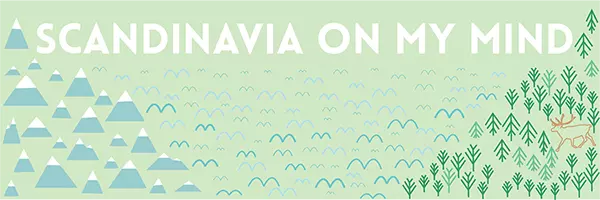It’s long been touted as the land of equality: the world’s first lesbian Prime Minister, equal pay for women and one of the happiest countries on the map.
But as crime writer Ragnar Jonasson notes, Iceland still has far to go when it comes to women in the police force.
“Women have always been a minority,” he says, pointing to the fact that it was 1973 before there were any at all. Even more sobering is that, as of 2013, only 12 per cent of the police force was female.
“Research has suggested women are having a difficult time getting promoted within the workplace and therefore are more likely to quit than men,” he continues.
The Darkness
So it comes as a breath of fresh air to meet Hulda Hermannsdóttir the protagonist in The Darkness, the first in his Hidden Iceland trilogy. She’s no Miss Marple, and nor is she a femme fatale. Rather, the 64-year-old Detective Inspector at Reykjavik Police is an intuitive woman with a troubled past that is slowly revealed to the reader in layers.
Faced with early retirement and the prospect of a gentleman friend — her first real relationship since the death of her husband — Hulda has some big choices to make. First, there’s the chance to investigate a cold case and put her final two weeks at work to good use. Drawn to the death of a Russian refugee whose body was found in a watery grave and declared a suicide, Hulda soon learns that there is much, much more to the dead woman’s story.
Ragnar skilfully combines the challenges faced by older women in a male-dominated profession with attitudes towards refugees and migration. “It was something I wanted to include in my writing as it is very multifaceted and very much a part of our daily lives,” he explains. “How we take care of refugees can give insight into us as a community.”
To an outsider Iceland — and indeed much of Scandinavia — can appear to be a utopia. But The Darkness shows just how grim life can be here, regardless of the weather. One of the book’s characters, a single mother, battles just to get through each day. In one vignette, Ragnar writes: “Iceland was supposed to be a classless society, everyone was supposed to be equal … But she knew this was a myth.”
Ragnar acknowledges that, as a writer, it’s important to look beyond the traditional myths and narratives that come to define a nation. “We [Iceland] have a peaceful way of living … murders are few and far between,” he says. “But we can always do better and people do slip through the cracks. We must never forget that.”
Ragnar Jonasson in Siglufjordur. (Photo by Sigurður Ægisson)
Stylistically, The Darkness resembles his best-selling Dark Iceland series, which feature the young policeman Ari Thor, in that the story frequently shifts perspectives and time frames, delicately bringing the multiple fragments together to pack a real punch. Where it differs from many crime series is that Ragnar starts the story at the end of Hulda’s career. Book two, The Island, (due 2019) which traces the search for her father, is set 25 years prior, while the third and final instalment, The Mist goes back even further and gives us a glimpse into the domestic life she had with her husband and daughter.
Most reviews of The Darkness all mention one thing: the nail-biting ending. Without giving anything away, it’s certainly true that many readers will finish the book desperate to know more. On this, Ragnar remains philosophical. “I find the ending to be as definite as can be, but of course readers are able to interpret it as they wish,” he says.
He does, however, have stronger views when posed with the hypothetical question of what would happen if Ari Thor of Siglufjordur and Hulda Hermannsdóttir of Reykjavik were to ever meet. “I think Ari would learn a lot from Hulda,” he admits. “But Hulda might not be very interested in fostering yet another young policeman who would then get promoted over her.”
But given that Iceland is a small place, is a get-together completely out of the question? “Maybe they will meet one day!” Ragnar answers.
Perhaps, if the two were to work together, it would be a more equal partnership than any Hulda has experienced. Ragnar seems hopeful, highlighting that “we are seeing slow changes”, particularly with the appointment of Reykjavik’s first female police chief.
Surely Hulda would be happy about that.

Leave a Reply